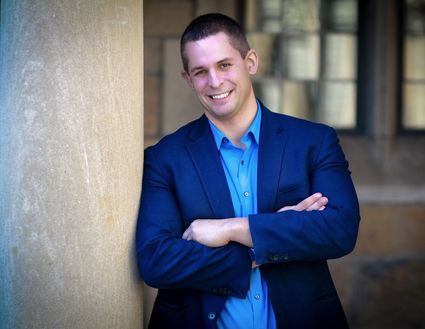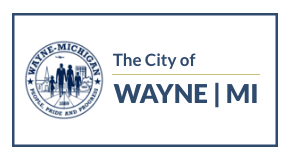Washtenaw County's New Prosecutor, Eli Savit
April 22, 2021
Washtenaw County Prosecutor Eli Savit has signed several policy directives designed to reduce inequities and promote public safety. Savit's 4-year term serving Washtenaw County citizens began January 1, 2021. His biography states "Most recently, Eli served as the City of Detroit's senior legal counsel, where he led criminal-justice reform work for Michigan's largest city." Savit is continuing his criminal-justice reform efforts in Washtenaw County.
Savit said of his policy directives, "At the end of the day, it is our mission to build a fairer and more equitable justice system and one that prioritizes rehabilitation and treatment over incarceration."
Policy Directive 2021-01 eliminates "zero-tolerance" policies and sets standards for plea agreements. "Zero-tolerance" laws came out of "The War on Drugs," which began in the 1980s. When these laws are in place, very little leeway is allowed in sentencing for defendants charged with certain crimes. Many times, plea bargaining is not available. The uniqueness of each case, person charged, and victim is not a factor. One-size fits all. Eliminating "zero-tolerance" policies helps the prosecutor consider all facts in each case to decide the best outcome for everyone, while protecting public safety.
Assistant Prosecuting Attorneys (APAs) are allowed to consider diverting a defendant into a drug court, mental-health court, or veteran's court if that defendant is accused of certain categories of crimes.
Policy Directive 2021-02 eliminates the use of cash bail and sets standards for pretrial detention. The directive states:
"Cash bail is a system under which a defendant who has been accused of a crime is required to post money in order to secure release from jail pending trial. Importantly, cash bail forces defendants to pay for their release before they have been convicted. In function, then, cash bail imposes pre-conviction punishment on criminal defendants who cannot afford to pay."
Cash bail is problematic because poorer people remain in jail before trial just because they cannot afford the payment. This can lead to loss of wages, jobs, housing, children displaced or forced to enroll in new schools and much more. According to a preliminary analysis by the ACLU of Michigan, more than half of the bookings in Washtenaw County jails had cash bail attached. The analysis also stated that "Black people in Washtenaw County are 8.55 times more likely to be incarcerated because they are unable to pay bail than white people."
Several studies have shown that cash bail does not enhance public safety.
"[I]t is the policy of the Washtenaw County Prosecutor's Office not to request cash bond in any case. The Prosecutor's Office can and will, however, seek unsecured and surety bonds in appropriate cases, particularly when deemed necessary to ensure public safety or to secure a defendant's appearance at trial."
As stated in the directive, "An "unsecured appearance bond" eliminates the need for a defendant to pay money upfront to secure release-but does require defendants to pay money if they violate the terms of release. A defendant may also be released on a "surety bond," which means that a third party promises to pay the amount of the bond if the defendant absconds or commits a new crime while they are on pretrial release."
If the defendant is charged with a crime and is deemed a threat to public safety, APAs may recommend denial of pretrial release.
Savit said, "We are the only county in the entire state that will not seek cash bail on any case."
Police agencies and local prosecutors often have a working relationship. When police officers are involved in violent actions against civilians, local prosecutors do not always recluse themselves when deciding if charges are appropriate. It is difficult to avoid an appearance of bias. In 2014, an Ann Arbor police officer shot and killed Aura Rosser, a Black woman. The Washtenaw County Prosecutor's office (under a different administrator) followed through with the case and acknowledged the death as tragic, but justifiable homicide.
Policy Directive 2121-03 states "the Washtenaw County Prosecutor's Office will henceforth recuse itself from all local cases involving police violence. The Prosecutor's Office will seek the appointment of an independent special prosecutor in all such cases."
Paul Draus, PhD, Director, Criminology and Criminal Justice Graduate Studies and Professor of Sociology,
Department of Behavioral Sciences at the University of Michigan-Dearborn, says, "Prosecutor Savit seems to be moving strongly in the direction of ramping down punitive policies in a number of areas including substance use, as well as reforming policies related to police violence and cash bail."
Policy Directive 2121-04 addresses civilians resisting and obstructing law enforcement officers. While this is a criminal act in Michigan, sometimes encounters between civilians and law enforcement officers are unnecessarily escalated by the officers. "Prior to authorizing a resisting-and-obstructing charge, APAs must review all relevant videotaped materials, including but not limited to body-camera and dashboard camera recordings." If the alleged resisting-and-obstruction charge, took place in a custodial setting, relevant videotape will also be reviewed. If the APAs are aware of other relevant footage, such as that from cell phones, they will review it prior to any filed charges.
Policy Directive 2121-05 contends with cannabis and marijuana. Cannabis once widely accepted by Americans for medical usage and as an industrial textile in the early 20th century, was virtually banned nationwide when Congress passed the Marijuana Tax Act in 1937. Scientific evidence, reported by the New York Academy of Medicine in 1944, refuted claims that marijuana caused violent behavior and acted as a gateway drug. The then head of the Federal Bureau of Narcotics dismissed the report. Despite scientific evidence, cannabis was eventually classified in the 1970s Controlled Substance Act, passed by Congress, as a Schedule 1 controlled substance. This classification was reserved for the most dangerous and highly addictive substances, such as heroin.
Nationwide Blacks people are 3.6 times more likely than whites to be arrested for cannabis use. This happens even though usage among white and Blacks is about equal. In 2018, black people in Washtenaw County were 4.7 times more likely than whites to be arrested on such charges. Even though many states have decriminalized marijuana, it remains illegal on the federal level. Marijuana conviction consequences often prevent people from acquiring jobs, public housing, grants and loans to attend school. Non-citizens may be deported because of marijuana convictions.
The State of Michigan imposes limits on the amounts of marijuana allowed for possession, as well as requiring it not to be visible to the public, and storage under lock and key to keep it out of the hands of children. Under Policy Directive 2121-05, the Washtenaw County Prosecutor's Office will no longer file charges for unauthorized use of possession of marijuana or cannabis regardless of the amount at issue.
The storage or cultivating manner will not be an issue, unless it is done with repeated disregard of safety measures and allows access to children.
Small-scale sale and distribution of cannabis and marijuana will not be subject to charges for the most part. Large-scale profit-seeking operations may have charges filed against them. This is the case especially if they are adults selling to minors or many people with whom they do not have a personal relationship.
Each case is considered on an individual basis.
The Prosecutor's office will not contest any application for expungement where the underlying charge was for the possession, use, cultivation, or distribution of marijuana. This policy applies to all marijuana conduct whether it is or is not lawful in the aftermath of 2018's Proposal 1.
Operating a motor vehicle, aircraft, snowmobile, off-road recreational vehicle, etc. under the influence of marijuana is not allowed. Such charges may be filed if they are supported by evidence and in the interests of justice.
Savit has instituted several more policy directives including:
2021-07 – Policy regarding Buprenorphine (partial opioid widely and effectively prescribed for those recovering from opioid addiction)
2021-09 – Policy regarding Pretext Stops
2021-10 - Policy regarding Driver's License-related Offenses
2021-11 – Policy regarding Juvenile Charging
2021-12 – Policy regarding Immigration and Immigration-Adjacent Issues
Savit announced, on January 5, 2021, the launch of the "Prosecutor Transparency Project" in Partnership with the ACLU and University of Michigan Law School.
The aim of the project is to uncover potential racial inequities through the collection and analysis of data regarding decisions made by the prosecutor's office, including who is charged with a crime, the nature of the charge, the race of the individual charged, and other crucial information such as plea-bargaining conduct. The results of the project-the first of its kind to be conducted in Michigan-will be shared with the public.
The announcement of the partnership fulfills one of Savit's major campaign promises: to partner with independent, third-party researchers to identify and eliminate racially disparate treatment in the criminal-justice system. No taxpayer funds will be spent on the project.
The announcement also fulfills a recommendation from Citizens for Racial Equity in Washtenaw (CREW). In August, CREW released a report indicating that Black residents of Washtenaw County were far more likely to be charged with criminal offenses than white residents.
The initial stages of incorporating transparency in the Washtenaw County Prosecutor's Office began with publishing the policy directives on the website. That allows the public to have the same policy information as the APAs.
According to Savit, while the Prosecutor Transparency Project will initially focus on racial inequalities, it will also focus on the longer term - tracking outcomes across the criminal legal system. These additional tracking metrics will include how the Prosecutor's Office promotes rehabilitation, processes cases in terms of fairness, and more.
Savit said, "I'm a big believer in data and in doing what works. I think that the public deserves to know whether what we're doing is working. So, it will be more robust than just racial equity."
The Washtenaw County Prosecutor's Office website is https://www.washtenaw.org/1070/Prosecuting-Attorney.

















Reader Comments(0)